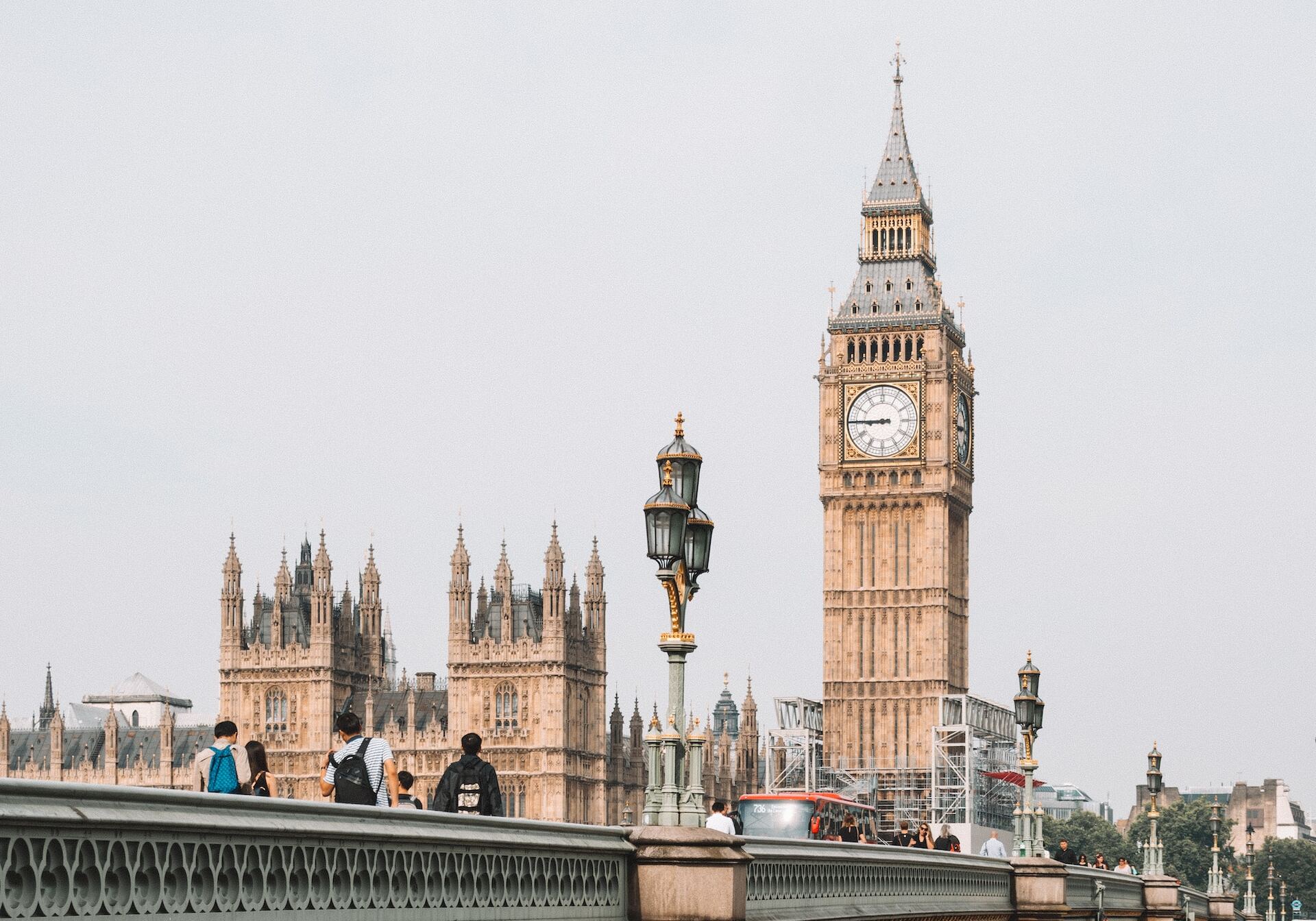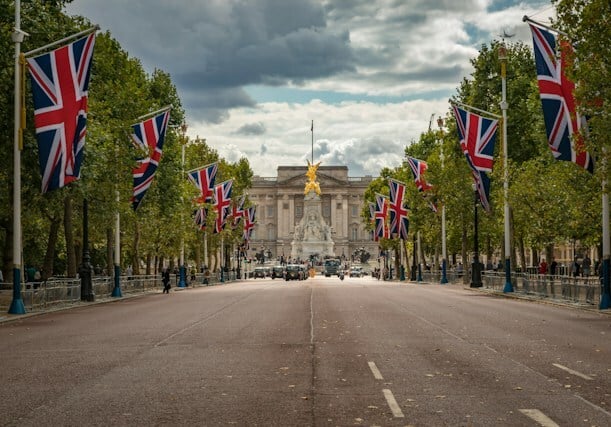Obtaining British citizenship is the ultimate goal for many people who arrive in the UK through various immigration routes. To become a UK citizen, you gain the benefits of living and working without the restrictions of immigration controls.
In this article, you will learn how to apply for British citizenship, its benefits, if you are eligible, and how much it costs.
Benefits of British Citizenship
What are some of the advantages of being British? Here are a few reasons why you should rejoice if your application is approved:
Unrestricted access: UK nationals can apply for a British passport, allowing unrestricted access to leave and enter the country without immigration restrictions. You can also travel to all member nations of the European Union without needing a visa (this may all change after the UK leaves the EU).
Freedom to live, work, and study: One of the most significant benefits is the unrestricted right to live, work, and study in the UK. As a citizen, you won’t face any immigration restrictions, reflecting the same rights granted to all UK citizens. Thus, you gain permanent permission to reside in the United Kingdom without worrying about visa limitations or immigration rules.
Access to a British passport: British passports are recognized as one of the most powerful globally, offering visa-free or visa-on-arrival access to 172 countries. Countries include those that allow travel authorization obtained online, and visa applications upon arrival. This passport not only facilitates hassle-free international travel but also serves as solid proof of your residency rights in the UK.
Voting rights and political participation: As a British citizen, you gain the right to vote in local and national elections and referendums. You’re also eligible to stand for public office, allowing you to actively participate and influence the political landscape of your community and country.
Free healthcare: Another significant perk is access to the National Health Service (NHS), which provides free healthcare to all British citizens. This includes a wide range of medical services, ensuring your health and well-being are taken care of without the burden of medical expenses.
Eligibility for public funds: Unlike visa holders, who are often restricted from public funds, British citizens can claim benefits in the UK. This includes financial support such as a jobseeker’s allowance or child benefit, offering a safety net in times of need.
No work restrictions: There are no restrictions on your right to work in the UK. The British Nationality Act allows British citizens to pursue any career or job without needing additional permissions or work visas.
Freedom to travel abroad: British nationality law places no restrictions on British citizens traveling abroad, allowing British citizens to claim the benefits of a British passport by exploring the world without worrying about residency status in the UK.
How to Obtain British Citizenship
There are several ways to obtain British citizenship, from descent and birthright to marriage and naturalization. Natural-born British citizens may automatically acquire British citizenship through a British parent or by being born in the UK or a British Overseas Territory.
Here is a breakdown of ways to acquire British citizenship:
British citizenship by birthright
Children may be eligible for British citizenship by birthright if born in the United Kingdom; however, this may be determined by when they were born. The following individuals automatically acquire British citizenship or have the right to obtain:
- Children born in the UK or a British colony before 1 January 1983
- Children born in the UK between 1 January 1983 and 1 October 2000
- Children born in the UK between 2 October 2000 and 29 April 2006 and at least one parent was a British citizen or an EU, EEA, or Irish citizen living in the UK. People born in the UK also qualify if one of their parents had settled status at the time of their birth.
- Children born in the UK and at least one parent was a British citizen, or an Irish citizen living in the UK, or held indefinite leave to remain (settled status).
British citizenship by descent
Children may acquire UK citizenship by descent depending on their parents’ citizenship status and when they were born:
- Children born abroad before July 2006, and at least one parent was a British citizen
- Children born abroad after June 2006, and at least one parent was a British citizen born in the UK or received citizenship by naturalization
British citizenship through adoption
- The adopted children of a British citizen will automatically acquire British citizenship if the child was legally adopted in the UK and the adopted parent lives in the UK.
- A child adopted overseas by a British citizen can apply to become a British citizen if the adoption was conducted under the Hague Convention and the child was born after 1 June 2003.
British citizenship by marriage
A person may be eligible for UK citizenship based on marriage if they have a British spouse, have lived with them in the UK for at least three years, and hold indefinite leave to remain.
British citizenship by naturalization
An individual may be eligible for British citizenship by naturalization (British nationality based on residency) if they have legally resided in the UK for the minimum period required to apply for indefinite leave to remain (usually three to five years, depending on your residence visa) and have settled status for 12 months.
Based on the British Nationality Act, those without familial ties who wish to become British citizens by naturalization must fulfill the following criteria:
- Have lived in the UK for at least 12 months with ILR
- Pass the B1 CEFR level English language requirement (unless exempt)
- Have good character
There are grounds for exemption of UK test and language requirement, such as age or a long-term physical or mental condition. If your immigration status falls within any of the above, you can apply for British Citizenship and gain a second citizenship.
Residency

The minimum residency period to apply for citizenship may be reduced, depending on your residency visa. For example, a UK Innovator Founder Visa allows visa holders to apply for indefinite leave to remain after three years of residency.
For your application to be accepted, you must also:
- Be 18 years old or older
- Not have a serious criminal record
- B a UK permanent residence with indefinite leave to remain status
- Not have broken any immigration laws while in the UK
- Pass the Life in the UK test and satisfy English language requirements
UK Visa options
Several UK visas are available to obtain a biometric residence permit (BRP) that can eventually allow eligible applicants to apply for British citizenship. One common pathway is through the Skilled Worker Visa, which requires a demonstration of specific skills and a job offer from a UK employer. Successful applicants can initially stay for a designated period and may qualify for settlement.
Similarly, the Global Talent Visa is available to individuals who showcase exceptional talent or promise in specific fields such as science, humanities, engineering, arts, or digital technology.
Additional considerations
- Commonwealth citizens and Irish citizens may have different pathways to citizenship.
- Those from British colonies or considered British subjects due to historical ties to the British Empire may also have unique eligibility.
NOTE: As an international student in the UK, you might be wondering about the possibility of acquiring British citizenship for students. However, under current regulations, holding a student visa does not directly qualify you to apply for British nationality. This type of visa doesn’t provide a pathway to change your status to that of a regular UK resident, which is typically a requirement for seeking citizenship.
How to Apply for British Citizenship
Once you’re satisfied you meet the eligibility criteria for citizenship, the next step is to submit an application form to apply for British citizenship with all the relevant documents. You will need to demonstrate the following:
If your application is on the grounds of marriage to a British citizen, you must prove that you have lived in the UK for three years and have Indefinite Leave to Remain status. You must also demonstrate that you have spent less than 90 days in the past 12 months or 270 days in three years outside the country.
If you’re not married to a British citizen, you must have lived in the country for five years, have ILR status, and not been outside the country for more than 90 days in 12 months or 450 days in five years. You must also demonstrate your intention to continue to live in the UK.
- Prove you have passed the ‘Life in the UK’ test.
- Prove your knowledge of English, Welsh, or Gaelic.
- Be of good character.
- Prove you intend to continue living in the UK.
Although the requirements are strict, if you satisfy all of them, you will likely receive a positive outcome to your application.
Before applying
Before starting your British citizenship application, it is important for you first to obtain permanent residency in the UK, such as an indefinite leave to remain or a ‘settled status’ under the EU Settlement Scheme. The rule applies to everyone, even if you are married or in a civil partnership with a British citizen.
Besides having the right to live in the UK, there are a few more things you need to do before you apply for citizenship. These requirements can be straightforward if your spouse or civil partner is British. However, the requirements can be different if you’re from the EU, the European Economic Area (EEA), Switzerland, or a foreign national or family member from these places.
Ensure you understand the specific legal status and additional requirements you must meet before beginning your application process.
After applying
Usually, after you submit your UK citizenship application, it takes about six months to hear back. Sometimes, it might take longer, especially now that the coronavirus (COVID-19) has caused some delays. This delay, however, won’t have a negative impact on the decision about your British citizenship application.
There might be times when they need more details from you to process your application. If that is the case, they will let you know exactly what extra information you need to provide.
Also, inform UK Visas and Immigration about significant life changes (like moving, marriage, or legal issues) while your application is pending. You can email the Nationality Contact Centre at [email protected] if you need to contact them.
Sometimes, they might ask you to come in for an interview. If this happens, be ready for a potential interview where you’ll speak without an interpreter.
British Citizenship Ceremony

They will send you an invitation, and you must book a ceremony within three months of receiving the letter.
You can book group citizenship ceremonies with your local council. This cost £80. You can take two guests with you to attend the ceremony.
Private ceremonies are also available, but you must discuss the cost with your local council.
Attending the ceremony is optional for those becoming British citizens under the Windrush scheme, and there’s no fee attached to it.
Arranging your ceremony
Your local council takes care of setting up the citizenship ceremony. These events are typically held in groups, but you can request a private ceremony if you want something more intimate. To book your ceremony, you’ll need to contact your local council. Don’t forget to bring the invitation you received to the ceremony. Also, you can usually bring along two guests to share in your special moment.
Costs involved
The fee for the ceremony is already included in what you paid for your citizenship application. Choosing a private ceremony might cost extra, so check with your local council about any additional fees.
If you’re outside the UK
If you currently reside in a foreign country, you can inquire at the embassy or consulate there to see if you can host your citizenship ceremony locally. However, if you’re only away temporarily, they might ask you to wait until you return to the UK. You must book your ceremony within three months of receiving the invitation. If you plan to stay abroad for a long time, you’ll need to prove that you intend to live permanently in the UK. Also, if you applied for citizenship in the UK, you cannot have your ceremony abroad.
During the ceremony
At the ceremony, you will make a formal pledge to the UK, which includes an oath of allegiance (or an affirmation, if preferred) and a pledge to respect the UK’s rights, freedoms, and laws. Once the ceremony is over, you’ll receive your British citizenship certificate and a welcome pack. Some local councils also offer the option to purchase photographs or videos of the event, commemorating when you officially hold British citizenship.
Exceptions to attending a ceremony
Not all applicants are required to attend a citizenship ceremony. You are exempt from this requirement if you are registering as a British Overseas Territories citizen, British overseas citizen, or British subject. However, you will still need to take an oath or affirmation of allegiance and receive instructions on how to do this.
How long does it take to get British citizenship?
After you’ve successfully applied for British citizenship, you will receive written confirmation. It may take up to 6 months to process the application. Some complicated cases may take longer.
How to Get a British Passport
You can request a British passport through the following:
- Online: HM Passport Office provides a streamlined process for applicants to submit passport applications, digital photographs, and pay fees.
- Post office: A local Post Office can verify your documents and send them to HM Passport Office by Special Delivery. This requires an additional fee.
- Post: You can send your passport application and supporting documents to the UK Visas and Immigration division of the Home Office.
- By appointment: You must attend an appointment at your nearest HM Passport office to receive a passport through fast-track services.
Applications for passports from abroad may include different procedures, depending on where you’re applying.
Required documents
British passport applications require original documents to prove citizenship. These may include:
- A birth certificate (if born in the UK before January 1983)
- Proof of parents’ immigration status (if born in the UK after January 1983)
- A certificate of naturalization or registration if born overseas
- Your supporting documents
- A counter-signatory from a British citizen who has a professional standing to confirm your identity
Non-English or Welsh documents must be accompanied by sworn translations.
How Can Global Citizen Solutions Help You?
Global Citizen Solutions is a boutique migration consultancy firm with years of experience delivering bespoke residence and citizenship by investment solutions for international families. With offices worldwide and an experienced, hands-on team, we have helped hundreds of clients worldwide acquire citizenship, residence visas, or homes while diversifying their portfolios with robust investments.
We guide you from start to finish, taking you beyond your citizenship or residency by investment application.

Frequently Asked Questions about British Citizenship
How can I get UK citizenship from the US?
To hold British citizenship as an American, you would typically need to complete a UK citizenship application. This process often involves living in the UK for a certain period, adhering to specific requirements, and possibly renouncing your current citizenship unless going for dual citizenship.
Does England allow dual citizenship?
Yes, England allows dual citizenship. This means you can be a British subject and a citizen of another foreign country without losing your British status.
Does the US allow dual citizenship with the UK?
The United States permits its citizens to hold British citizenship as well, recognizing dual nationality. Both countries do not require you to give up one citizenship to hold the other.
How long does it take to get UK citizenship as an American?
The time it takes to be granted citizenship in the UK as an American varies. Typically, after fulfilling residence requirements and submitting your UK citizenship application, it can take several months to a year for the process to complete.
How do I qualify for dual citizenship in the UK?
Qualification for dual citizenship in the UK depends on factors like your current citizenship status, employment status, and whether you have a British subject or civil partner in the UK.
What is proof of living in the UK for five years citizenship?
Proof of living in the UK for 5 years for British citizenship by naturalisation often includes documents like bank statements, utility bills, or official correspondence showing your residence.
How many years do you have to stay in the UK to become a citizen?
Generally, foreign nationals need to have settled status, often after living in the UK for 5 years, to apply for United Kingdom citizenship. This period varies for Commonwealth citizens, Irish citizens, or those from British colonies under certain conditions.
What are the immigration time restrictions for Commonwealth countries' citizens seeking UK citizenship through civil partnership with a British national?
Citizens from Commonwealth countries who are in a civil partnership with a British national must comply with specific immigration time restrictions before they can apply for UK citizenship. Generally, they need to have lived in the United Kingdom with valid immigration permission for a continuous period, usually for at least five years, before they can apply. During this time, they must not have spent more than a certain number of days outside the UK. It is advisable to Provide legal advice or consult the Aliens Act for specific details and requirements.
What are the requirements for foreign nationals to pass the UK test for citizenship, and what are reasonable grounds for exemption?
Foreign nationals applying for UK citizenship must pass the “Life in the UK Test,” a standard requirement to demonstrate knowledge of British customs, traditions, and language. However, there are grounds for exemption, such as age or a long-term physical or mental condition. Additionally, applicants must meet residency requirements and should not have any immigration time restrictions or adverse immigration history. It’s important to Provide legal advice on individual circumstances, as specifics can vary based on the applicant’s background and situation.



